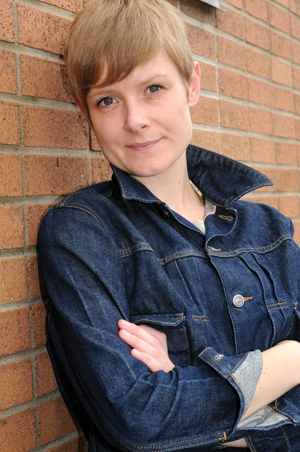Toronto police could find an odd sight when they search protesters detained at this week’s G20 summit: a phone number tattooed across their bodies.

Waiting on the other end of the “arrest line” will be Kate Oja or one of her colleagues in the Law Union of Ontario’s movement defence committee.
“We’ve got a roster of counsel who have signed up to do free bail hearings, so we’ll put people in touch with those lawyers and set them up with their sureties to have their bail hearings and hopefully get them released,” says Oja, who has just completed her articles and was called to the bar last week.
Once the demonstrations begin, the defence committee will enter the second phase of a project that began months ago with a series of legal information sessions for people who plan on protesting and observing the summit.
Over the weekend, it wrapped up the first phase with two “know your rights” seminars for protesters. On its web site, the committee advises activists to write the phone number for its arrest line or that of another lawyer in permanent marker on their bodies.
“Police may take paper from you or you could forget the number due to stress or injury,” it reads.
Irina Ceric, another lawyer and founding member of the committee, says the sessions have attracted a mix of activists ranging from the novice to the seasoned. She’s expecting a large proportion of the protesters this week to come from out of town.
“We know there will be a lot of people interested in expressing their views about the G8 and the G20, and it’s important for them to know what their rights are knowing that dissent is often criminalized,” she says.
Oja believes police have tried to intimidate people into staying away from the G20 but hopes the information sessions will encourage people to make their voices heard.
“The way we are trying to counter that is to let people know how they can protect themselves from the police and from that intimidation,” she says.
Participants learn the basics, such as the rights to counsel and to remain silent after arrest. Oja tells them they don’t have to consent to a search unless police arrest them.
But in the heat of the moment, events rarely go according to plan, and the nuances of constitutional theory are among the first casualties in a tense encounter with police. Oja says participants run through scenarios in the sessions but notes there’s no predicting the reality of a situation.
“Nothing ever goes as planned,” she says. “But it’s important to remember to stay calm and try to remember you’ve got the right to counsel and not say anything if you don’t want to.”
The committee has also trained almost 100 legal observers who will wear identifiable hats and monitor police actions in order to report arrests and rights violations to the group’s legal office for possible use by counsel.
“Even if the information is not used, the presence of legal observers helps demonstrators feel safe on the streets because they feel like someone is out there keeping an eye on the police,” Oja says. “It does have an effect on the tone of police conduct, we hope.”
So far, several law students have volunteered to become legal observers.
“That’s useful for us because they know what we’re talking about, and it provides a nice bridge between the movement and the lawyers,” Oja says.
On possibly the other side of the coin - but the same side of the security fence - Bay Street lawyers are girding for a tough week. The final boundaries of the G20 fence south of King Street spared large firms the hassle of security checks, but that has proved a double-edged sword since protesters could surround their buildings.
Siobhan Walsh, chief administrative officer at Bennett Jones LLP, says her firm will shut down the office on Friday and over the weekend. For the earlier part of the week, she’ll be on high alert.
“I really hope that there is no violence, but we have to be prepared for that,” she says. “We’ve got a contingency plan in place and we will draw on that in the event we have to make any quick decisions.”
Walsh says the firm has advised employees to dress down, including by wearing jeans, so they “sort of blend in with the protesters and don’t stick out as someone who works in these buildings.”
It’s all proved too much for some lawyers who have booked the entire week off, but Walsh says others are curious about what will happen. Bennett Jones has rented office space north of the 401 as part of its contingency plan.
Heather Caldwell, general manager of Gowling Lafleur Henderson LLP, says her firm will also close on Friday and has made its Hamilton, Ont., office available to Toronto employees. In the meantime, most lawyers will work remotely from home.
“If they need to be in the office based on client demand, we have the space for them there,” she says.
At Blake Cassels & Graydon LLP, chief financial officer Richard Prupas says the firm has also decided to close on Friday.
“We are monitoring the situation and are working to maintain our service to clients throughout the weekend. We will continue to service our clients and our other offices by accessing our systems remotely.”

 Waiting on the other end of the “arrest line” will be Kate Oja or one of her colleagues in the Law Union of Ontario’s movement defence committee.
Waiting on the other end of the “arrest line” will be Kate Oja or one of her colleagues in the Law Union of Ontario’s movement defence committee.